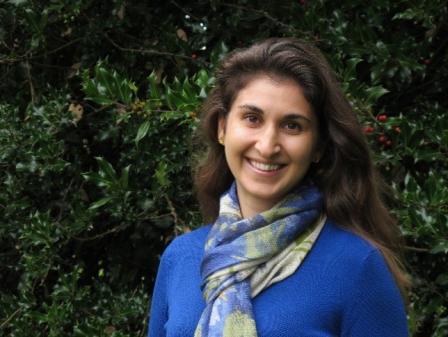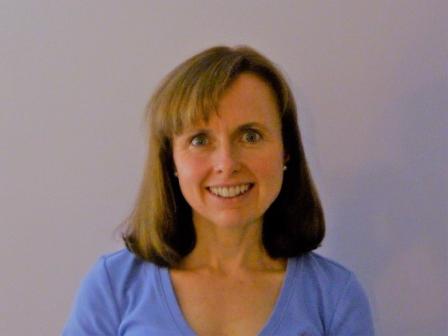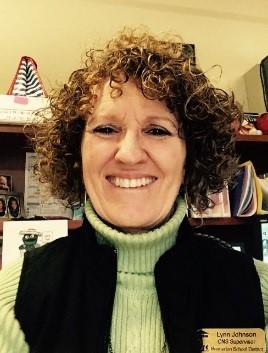On this page:
Description
Thursday, March 30, 2017, 1:00-2:30 p.m. EST
School food invokes memories of cafeteria lines, pizza and cartons of milk. What most of us didn’t pay attention to or don't remember was the amount of wasted food (food that could be eaten by someone else if recovered) and food waste (food that is inedible or has been partially consumed and could be composted) created in school cafeterias. In this webinar, attendees will hear from three leaders in the industry on how to more effectively manage the entire food process affecting school cafeterias.
First, you will hear about methods to teach children about the impacts of food waste and wasted food. Then, moving directly into the cafeteria, you will learn about practices to evaluate the amount of food waste and wasted food. Finally, you will learn about a new initiative to collect the wasted food and redistribute it into the community for people to eat.
![]() Video: Reducing and Recovering Wasted Food in Schools - Lessons from the Cafeteria LineExit
Video: Reducing and Recovering Wasted Food in Schools - Lessons from the Cafeteria LineExit
Speakers
 Nayiri Haroutunian, Program Manager, Washington Green Schools - Through this non-profit, Nayiri works closely with schools and teachers in the state of Washington to provide curriculum support that is rooted in environmental standards, as well as guidance to encourage student environmental leadership projects. She recently developed a National Generation Science Standards-driven curriculum on waste and decomposition for Seattle Public Schools called Zombie Guacamole. Nayiri previously worked as an environmental educator at Shedd Aquarium in Chicago, developing, implementing and evaluating engaging programs for diverse urban youth, including local stewardship and restoration programs. Nayiri holds an M.S. in Natural Resources and Environment from the University of Michigan and a B.S. in Psychology from the University of Iowa. Nayiri is committed to access and equity in environmental education and is passionate about local food and photography.
Nayiri Haroutunian, Program Manager, Washington Green Schools - Through this non-profit, Nayiri works closely with schools and teachers in the state of Washington to provide curriculum support that is rooted in environmental standards, as well as guidance to encourage student environmental leadership projects. She recently developed a National Generation Science Standards-driven curriculum on waste and decomposition for Seattle Public Schools called Zombie Guacamole. Nayiri previously worked as an environmental educator at Shedd Aquarium in Chicago, developing, implementing and evaluating engaging programs for diverse urban youth, including local stewardship and restoration programs. Nayiri holds an M.S. in Natural Resources and Environment from the University of Michigan and a B.S. in Psychology from the University of Iowa. Nayiri is committed to access and equity in environmental education and is passionate about local food and photography.
 Marybeth Martello, Sustainable Energy Administrator, Town of Wellesley, Massachusetts, and Program Coordinator for the MetroWest STEM Education Network at Framingham State University - Inspired by EPA’s Food Recovery Challenge, Marybeth led an effort at Bates Elementary School to design a comprehensive cafeteria waste assessment and implement a food recovery and recycling program that is now being replicated at other schools. Marybeth collaborates with Town government, state and federal agencies, and community groups to devise and run initiatives to lower greenhouse gas emissions via sustainable materials management, building design and energy conservation. Marybeth’s projects also work to advance STEM learning, especially as it pertains to the environment. She is currently helping to develop a climate change education program for middle school teachers. Marybeth holds a B.S. in Civil Engineering and a B.A. in English from the University of Connecticut. She has an M.S. in Environmental Engineering and an interdepartmental Ph.D. from the Massachusetts Institute of Technology.
Marybeth Martello, Sustainable Energy Administrator, Town of Wellesley, Massachusetts, and Program Coordinator for the MetroWest STEM Education Network at Framingham State University - Inspired by EPA’s Food Recovery Challenge, Marybeth led an effort at Bates Elementary School to design a comprehensive cafeteria waste assessment and implement a food recovery and recycling program that is now being replicated at other schools. Marybeth collaborates with Town government, state and federal agencies, and community groups to devise and run initiatives to lower greenhouse gas emissions via sustainable materials management, building design and energy conservation. Marybeth’s projects also work to advance STEM learning, especially as it pertains to the environment. She is currently helping to develop a climate change education program for middle school teachers. Marybeth holds a B.S. in Civil Engineering and a B.A. in English from the University of Connecticut. She has an M.S. in Environmental Engineering and an interdepartmental Ph.D. from the Massachusetts Institute of Technology.

Lynn Johnson, Supervisor, Child Nutrition Services at Bremerton School District - Lynn has been involved in Child Nutrition for over 15 years and has held her current role since January 2015 at a school district in Bermerton, Washington, that serves over 5,000 children across nine schools. She has been instrumental in the School Food Share project that started at the Bremerton School District in 2016 that, on average, keeps 3,000 pounds of reusable food out of landfills per month and puts it into the mouths of people in the community who need it. Lynn has four married children and three grandchildren, with another on the way. She enjoys spending time with her family on their five-acre “hobby farm” in Belfair, Washington, where they garden, grow fruit and have a lot of animals.
Slides
You may need a PDF reader to view some of the files on this page. See EPA’s About PDF page to learn more.-
Reducing and Recovering Wasted Food in Schools (PDF)(3 pp, 207 K)
SMM webinar introductory slides
- Cafeteria Waste Assessment: Town of Wellesley (PDF)(27 pp, 3 MB)
- The Future of Waste: Certification and Curriculum with Washington Green Schools (PDF)(19 pp, 3 MB)
- Bremerton, Washington: School Food Share (PDF)(11 pp, 2 MB)
